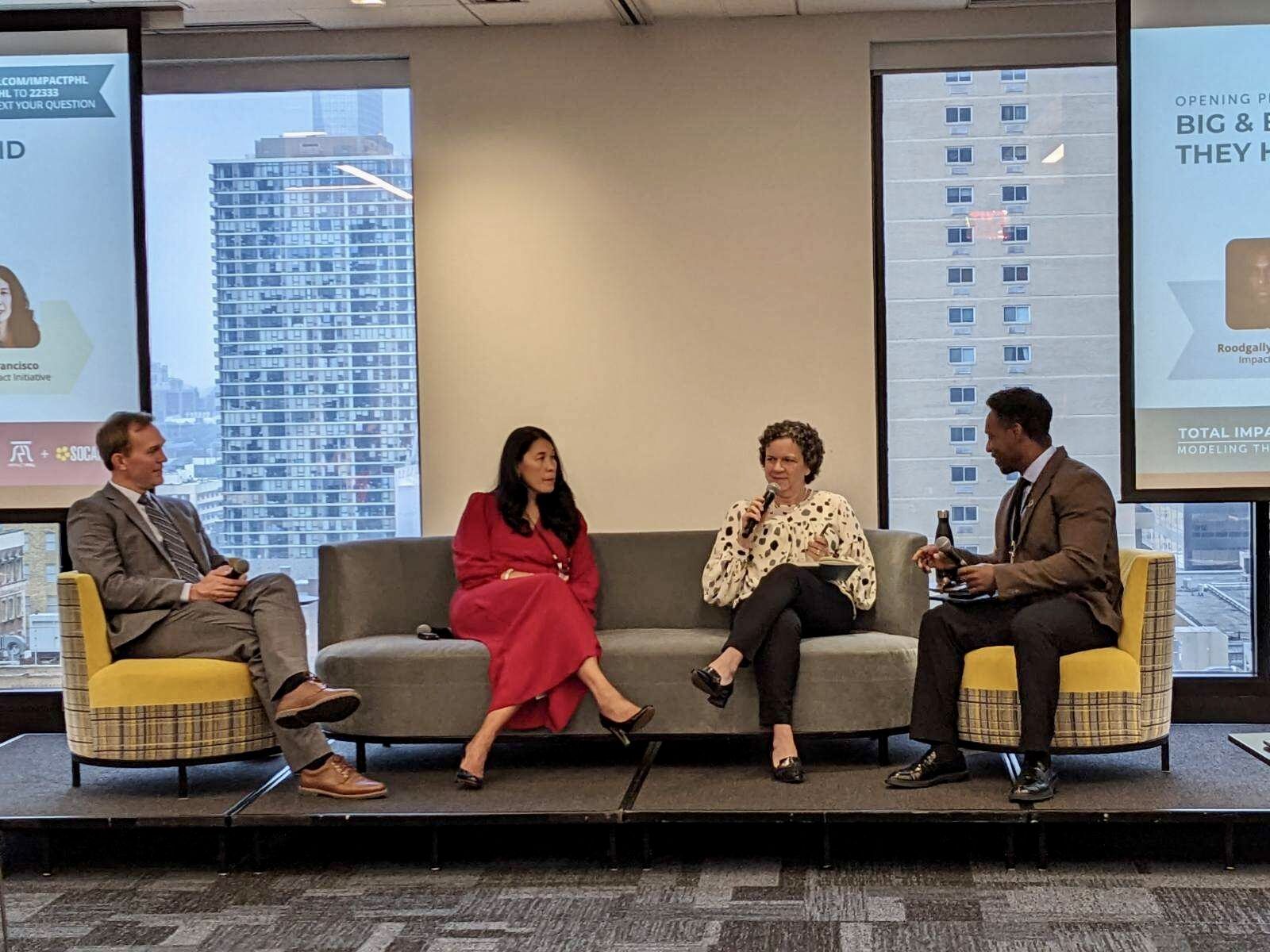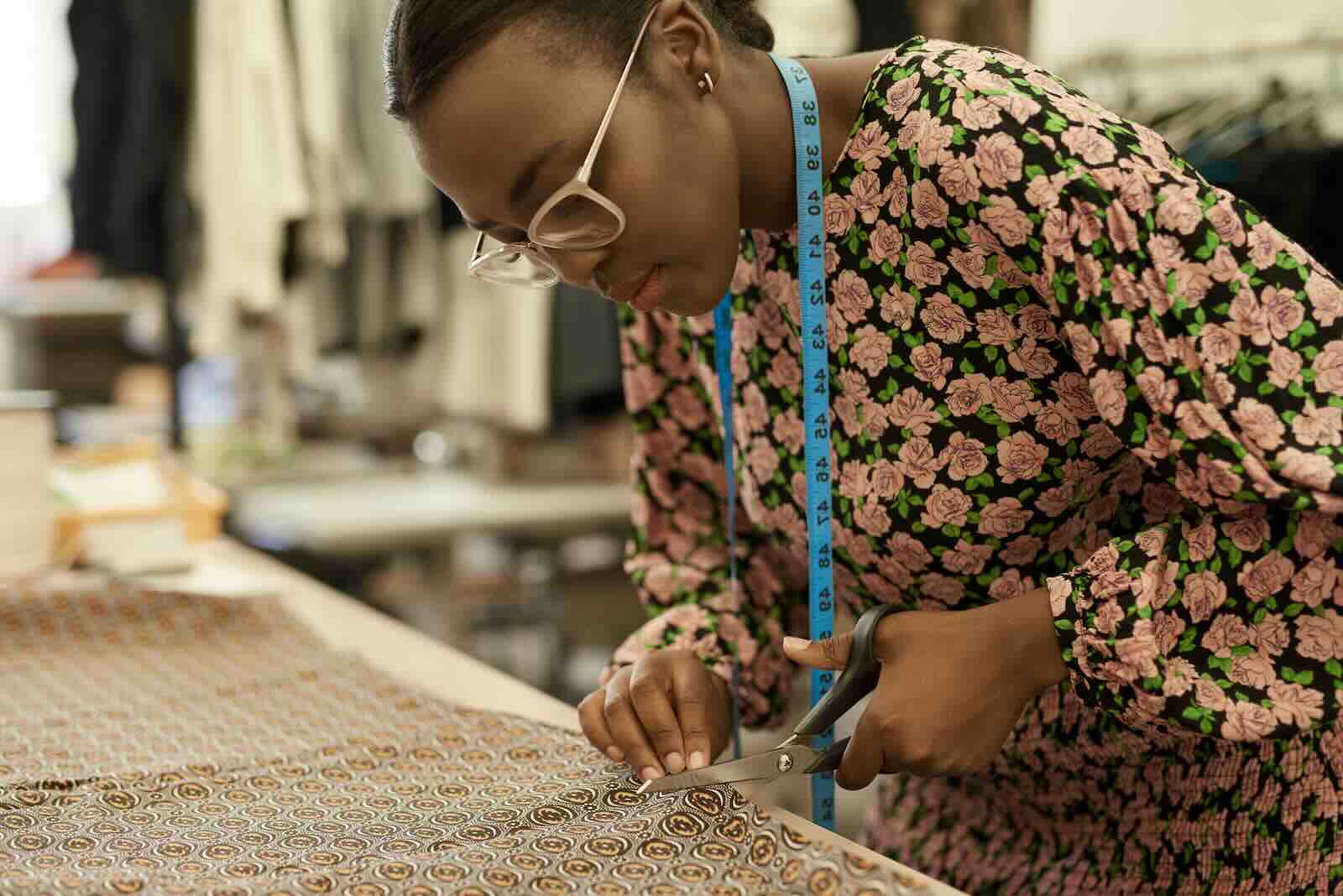Greetings, Agents of Impact!
Featured: ImpactAlpha Original
Generation Investment Management: COVID-19 creates a generational opportunity for sustainability. Where we live. How we work. What we want – and what we need. The severe health and economic impacts of the global pandemic in the short term are accelerating long-term trends that, with decisive action, could make the transition to a more sustainable and inclusive future faster than anticipated. “We believe the action and momentum triggered by events this year will prove a powerful catalyst for sustainability,” say authors of the latest “Sustainability Trends” report from Generation, the $20 billion investment firm co-founded by Al Gore and David Blood. “There is a sense of new political and social realities forming that provide a generational opportunity.” For the fourth year running, Generation has documented the “sustainability revolution” with more than 200 charts and figures. The COVID disruption, says Generation’s Anthony Woolf, has awakened an understanding of inequality, injustice and an economy living beyond its means and resources. “2020, in hindsight, will be seen as this chance to rethink reset, and to some extent, redesign, how we do things,” Woolf told ImpactAlpha.
Take healthcare. Large percentages of Hispanic and Black Americans remain uninsured. Lower- income people pay a higher share of their income for out-of-pocket healthcare expenses. During the pandemic, one in 10 people have turned to lower-cost telehealth services for migraine and coronavirus symptoms. “These are structural changes that may persist beyond the pandemic,” says Generation. In food, growth rates of fossil-fuel intensive beef production have fallen sharply in recent years while interest is growing in plant-based meat and other alternatives. Sales growth of plant-based creamer, yogurt, eggs, cheese and ice cream are all out-pacing their animal-based versions. The cost of producing protein has plummeted while funding for food and agri-tech startups has spiked. And of course, companies that facilitate remote work have taken off. Zoom grew users from 10 million in December to 200 million in March. Still, the ability to work from home differs sharply by income, race and geography. “Whether it’s Black Lives Matter or the climate crisis or our air pollution or the transition to electric vehicles,” says Woolf, “we all need to do more than just hope for change.”
Keep reading, “COVID-19 creates a generational opportunity for sustainability,” by Dennis Price on ImpactAlpha.
Dealflow: Follow the Money
Catholic Investment Services takes $24 million slug of Hamilton Lane’s first impact fund. Last week, the $69 billion private equity firm Hamilton Lane closed a $95 million impact fund targeting health and wellness, energy and environment, community development and financial empowerment. Catholic Investment Services, a nonprofit investment advisor that manages roughly $650 million in Catholic assets, invested $24 million on behalf of its clients via a pooled feeder fund, ImpactAlpha has learned. The structure gives CIF “individual opt out rights” on each deal in the portfolio, according to the advisor. “We saw interest from faith-based investors seeking to align their capital with their mission,” a spokesperson for Hamilton Lane told ImpactAlpha. “While the Hamilton Lane Impact Fund does not have a specific Catholic lens, many of the goals are already very similar.”
- Catholic invest/divest. Last month the Vatican urged Catholic congregations to “shun companies that are harmful to human or social ecology, such as abortion and armaments, and to the environment, such as fossil fuels.” More than a dozen congregations of Dominican sisters announced a pooled investment of $46.6 million to seed two new Climate Solutions Funds. More than 20 Catholic institutions with $40 billion in assets have signed the Catholic Impact Investing Collaborative’s impact investing pledge.
- Share this post.
Proximity Finance secures $14 million for loans to Myanmar’s farmers. Nearly 40% of Myanmar’s rural population lives in poverty. Proximity Finance, the microfinance arm of agriculture services provider Proximity Designs, offers flexible, low-interest loans to the country’s smallholder farmers. Approximately 60% of its clients are women.
- Incomes and livelihoods. The investment from Finnfund, Nordic Microfinance Initiative and France’s Proparco will help Proximity triple the number of farmers it supports and increase loan sizes.
- Share this post.
Enygma Ventures invests $1 million in Lupiya to expand access to capital in Zambia. Lupiya’s digital microfinance platform simplifies borrowing for Zambian women and businesses. Lusaka-based Lupiya was one of 11 female-led African ventures that participated in Enygma’s “investor-ready” program earlier this year. The funding will help Lupiya scale support for Zambia’s small businesses amid the COVID pandemic.
Marshall Wace to launch $1 billion ESG hedge fund. The planned fund will buy stocks that have strong environmental, social and governance characteristics, and bet against those that don’t, reports the FT. London-based Marshall Wace is the latest manager to adapt hedge fund strategies for ESG criteria (see, “Hedge fund manager Jeff Ubben launches public-market impact fund” and “CalSTRS anchors Impactive’s responsible-investing hedge fund”).
Signals: Ahead of the Curve
Even impact investors are fleeing risk in the face of the global pandemic. One in five impact investors are retreating – cutting back commitments – in response to the COVID crisis. “Most investors are currently in ‘risk-off’ postures, meaning that they are trying to reduce portfolio risks and are therefore looking at fund opportunities that are either inherently low-risk (cash equivalents, fixed income, etc.) or which have built-in risk mitigants,” according to the latest brief from the Global Impact Investing Network’s Response, Recovery, and Resilience Investment Coalition. The pullback is hurting fundraising, even for managers that had built in tranches of junior debt or first-loss protections. Commercial investors want even more coverage from such catalytic tranches, according to the R3 coalition’s survey of 40 individuals. Among other insights:
- Reimagining risk. Market volatility has made it difficult for investors to settle on valuations and to underwrite risk. One fund manager redesigned its risk framework to reflect dependence on suppliers and local labor, the ability to function during a lockdown, and the likelihood of a quick recovery. An asset owner now requires monthly (rather than quarterly) risk assessments from entrepreneurs that include cash flows, reopening plans, and operational adaptations. Underwriting criteria set before COVID-19 are not proving useful during the pandemic, but some investors are providing bridge loans and flexible debt to companies that can recover quickly after lockdowns (see, “Investors that demonstrate flexibility and patience prove catalytic in COVID crisis”).
- Due diligence. Investors are using COVID-related scenario analysis tools including Capria’s Edge platform and IIX’s COVID-19 resilience tool, and streamlining decision making with Zoom and Whatsapp calls, online applications and smaller loans sizes (see, “Redesigning due diligence for a deal pipeline in lockdown,” by Suzanne Biegel on ImpactAlpha).
- Share this post.
Agents of Impact: Follow the Talent
The Collaborative for Frontier Finance, with Sonen Capital, Dalberg, Fondo de Fondos and the Visa Foundation are surveying capital managers operating in Latin America about the impact of the COVID-19 pandemic (see, “COVID-recovery financing facilities aim to bridge capital gaps for small and growing businesses”)… The U.S. Impact Investing Alliance’s Fran Seegull joins Impact Entrepreneur’s Laurie Lane-Zucker in a virtual fireside chat, Thursday, July 16 (see, “Preparing an impact investing policy agenda for the next administration”)... KKS Advisors partners with Close Group Consulting to launch The Maturity Assessment Tool to measure ESG integration across asset management firms… Deloitte Italy is recruiting a sustainability analyst in Rome… Engie Impact seeks a director of sustainability solutions, APAC in Singapore… The Electric Power Research Institute is looking for a manager of its EPRI Innovation Hub.











